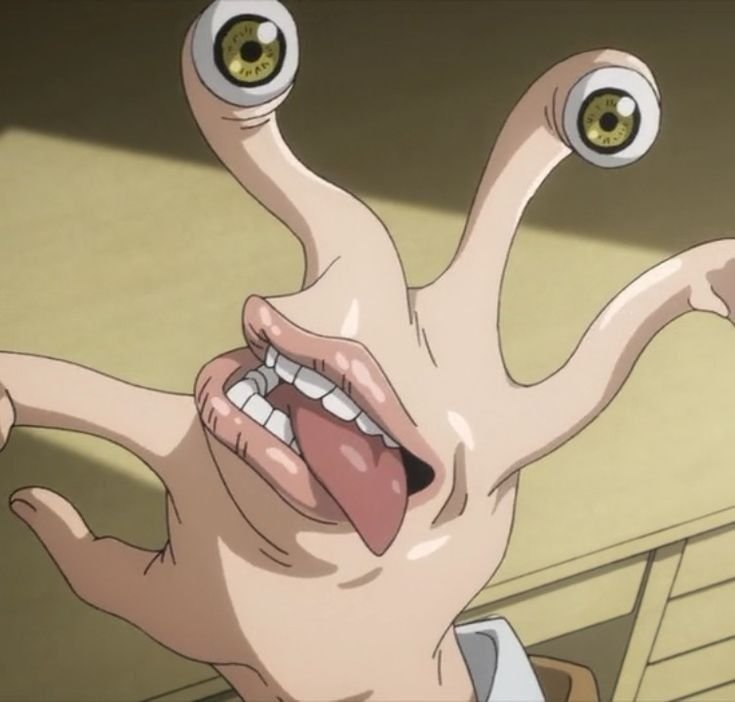

Migi

|
ミギー
|
|
|---|---|
| Personal Description | |
| Nihongo | ミギー |
| Vital Information | |
| Gender | Parasite |
| Eye Color | Hazel |
| Partner | Shinichi Izumi |
| First Appearance | |
| Manga Debut | Episode 1 |
| Anime Debut | Chapter 1 |
| Japanese Voice | Aya Hirano |
| English Voice | Brittney Karbowski |
Role:Main protagonist and parasite inParasyte
Personality Traits:Logical, detached, evolving, cooperative
|
Émile Durkheim
|
|
|---|---|
| Born |
David Émile Durkheim
15 April 1858 Épinal, France
|
| Died | 15 November 1917(aged 59)
Paris,France
|
| Nationality | French |
| Alma mater | École Normale Supérieure |
| Known for | Sacred–profane dichotomy Collective consciousness Social fact Social integration Anomie Collective effervescence |
| Scientific career | |
| Fields | Philosophy, sociology, education, anthropology, religious studies |
| Institutions | University of Paris, University of Bordeaux |
| Influences | Immanuel Kant, René Descartes,Plato, Herbert Spencer,Aristotle, Montesquieu, Jean-Jacques Rousseau, Auguste Comte. William James, John Dewey, Fustel de Coulanges, Jean-Marie Guyau, Charles Bernard Renouvier, John Stuart Mill |
| Influenced | Marcel Mauss,Claude Lévi-Strauss, Talcott Parsons, Maurice Halbwachs, Jonathan Haidt, Lucien Lévy-Bruhl,Bronisław Malinowski, Fernand Braudel, Pierre Bourdieu, Charles Taylor, Henri Bergson, Emmanuel Levinas, Steven Lukes, Alfred Radcliffe-Brown, E. E. Evans-Pritchard, Mary Douglas, Paul Fauconnet, Robert N. Bellah, Ziya Gökalp, David Bloor, Randall Collins, Neil Smelser[1] |
Background and Personality
Migi is a parasite that lives in Shinichi Izumi’s right hand. Unlike most parasites, Migi doesn’t consume Shinichi’s brain, which allows him to maintain his individuality. This makes Migi unique compared to other parasites, who are driven by survival instincts and the need to eat humans. Migi is mostly logical, focused on survival, and lacks emotional attachment, but throughout the series, he begins to evolve. His experiences with Shinichi help him develop a more nuanced understanding of life and human emotions.

With Migi’s alien precision and Shinichi’s sharpened resolve, the duo stands ready for battle, a powerful partnership forged in the heat of survival against monstrous foes.
Relationship with Shinichi Izumi
Migi and Shinichi have a partnership that grows as the story progresses. At first, their relationship is one of necessity—Shinichi relies on Migi for survival, and Migi depends on Shinichi’s body to live. As they spend more time together, Migi starts to understand Shinichi’s human emotions, even though he doesn’t fully comprehend them. While Shinichi struggles with his transformation, Migi stays focused on logic and survival, creating a complex dynamic between them.
Their bond deepens as they work together to face other parasites. Though Migi is initially indifferent to humans, he begins to develop some understanding of their complexities through his connection with Shinichi. This partnership is crucial for both characters, as it shapes their journey and their responses to the threats they face.
Role in the Story
Migi’s role in Parasyte is not just to help Shinichi survive, but also to challenge him. Migi offers a perspective that is cold, logical, and focused on survival, which contrasts with Shinichi’s growing emotional struggle. Through their relationship, Parasyte explores what it means to be human and how identity can change when you are forced to coexist with something alien. Migi’s transformation from a detached parasite to a more thoughtful being adds depth to the series.
Legacy and Themes
Migi’s evolution in Parasyte represents the series’ exploration of the lines between humanity and monstrosity. Initially a detached parasite, Migi begins to understand the complexity of life and emotions through his relationship with Shinichi. His journey highlights how survival isn’t just about instincts, but also about adaptation, understanding, and growth.
Through Migi, Parasyte asks important questions about identity and what it means to be human. His character shows that even the most alien creatures can evolve, and that survival is about more than just instincts—it’s about change, understanding, and the connections we make along the way.